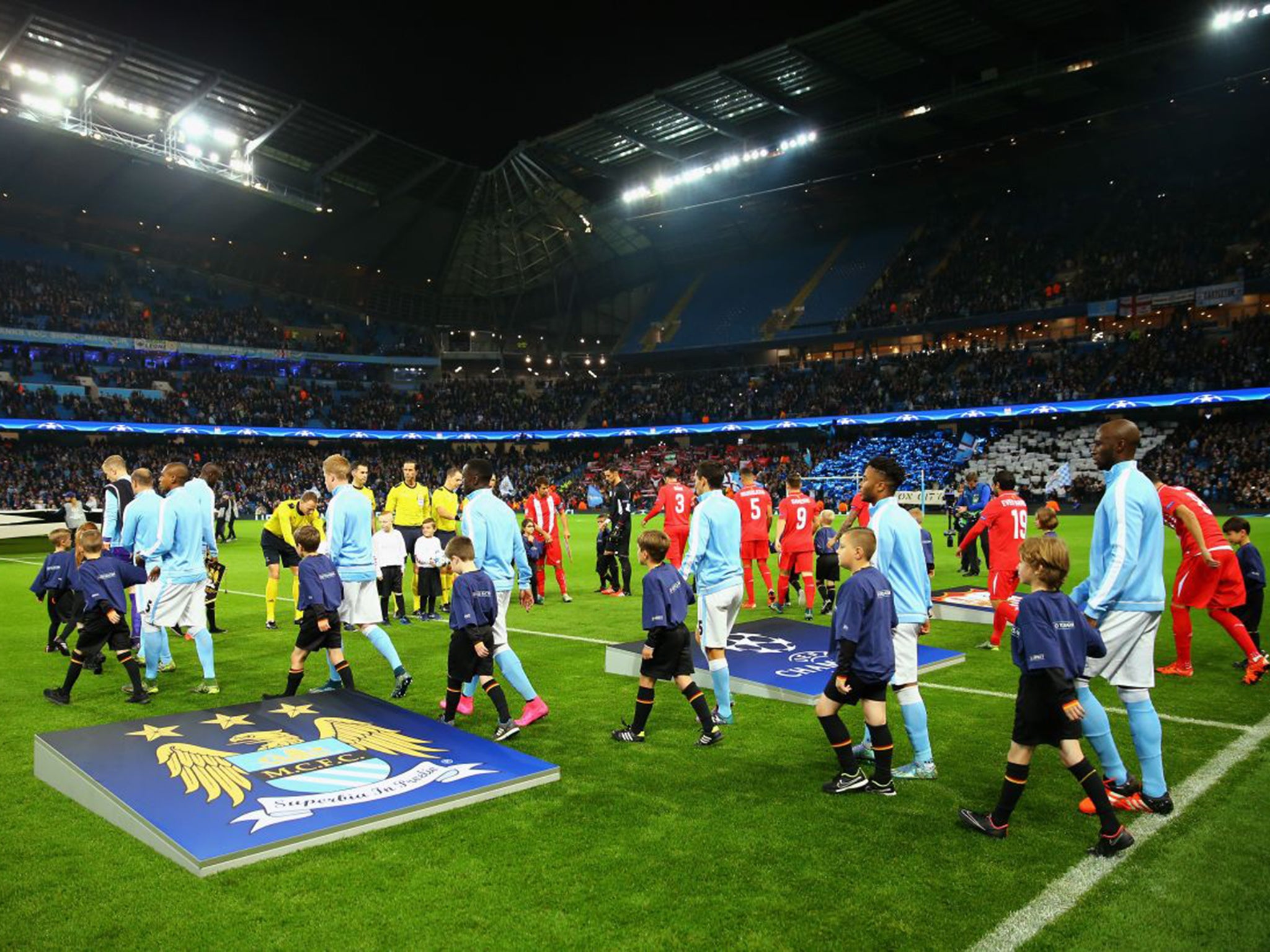Manchester City charged by Uefa: Why Handel is at the centre of a controversy
The Premier League club faces a fine after fans booed the Champions League theme – a rewriting of "Zadok the Priest"

Your support helps us to tell the story
From reproductive rights to climate change to Big Tech, The Independent is on the ground when the story is developing. Whether it's investigating the financials of Elon Musk's pro-Trump PAC or producing our latest documentary, 'The A Word', which shines a light on the American women fighting for reproductive rights, we know how important it is to parse out the facts from the messaging.
At such a critical moment in US history, we need reporters on the ground. Your donation allows us to keep sending journalists to speak to both sides of the story.
The Independent is trusted by Americans across the entire political spectrum. And unlike many other quality news outlets, we choose not to lock Americans out of our reporting and analysis with paywalls. We believe quality journalism should be available to everyone, paid for by those who can afford it.
Your support makes all the difference.Football fans are well known for booing the referee, as well as opposition team members and managers. They are less well-known for booing the composer George Frideric Handel; but it is that expression of displeasure with a particular tune of the 18th century composer that has landed Manchester City in hot water with the sport’s European governing body, Uefa.
A contemporary rewriting of Handel’s Zadok the Priest is the theme for Europe’s premier club competition, the Champions League, and is played before every game in the tournament.
Manchester City’s supporters have been drowning out the anthem for 18 months, however, in protest over Uefa’s controversial decision to hit their club with a £49m fine in May 2014, for breaching president Michel Platini’s ‘financial fair play’ rules which were designed to prevent reckless transfer spending.
Uefa – an organisation currently labouring under the misfortune of having Platini suspended pending an inquiry into Fifa (the world governing body) financial irregularities and his stand-in Angel Maria Villar Llona also under suspicion – has placed the club under investigation for a breach of “order and security” after fans had booed the piece before Wednesday night’s 2-1 home win against Sevilla.
City’s Chilean manager, Manuel Pellegrini, had earlier this week dismissed the notion that the booing ruined the atmosphere. But Uefa’s match official noted the reception for the Handel piece, and included it in the match report he submitted to Uefa.
City’s general counsel Simon Cliff subsequently received notice that the club would be investigated for a possible breach of article 16.2 of Uefa’s disciplinary regulations. The regulation states that clubs are “liable for… inappropriate behaviour on the part of their supporters and may be subject to disciplinary measures” for the “disruption of national or competition anthems.”
The anthem smashed a football stereotype a few years ago by leading the Wales international and Real Madrid player Gareth Bale to proclaim himself a big Handel fan.
“It’s little things like that which make the Champions League special,” Bale said, after walking out at Real Madrid to the agreeably uncomplicated lyric by the British composer Tony Britten, and sung by the St Martin-in-the-Fields chorus: “We are the champions; wir sind die Besten; nous sommes les meilleurs.”
The Independent understands that City are likely to challenge any Uefa charge. Since Uefa has set the rules, it is difficult to see a way around a fine, though good luck to any who try to deter future acts of dissent. The prospect of an investigation has prompted a collective call to arms from City fans on social media.
Platini, who has been banned from Uefa for 90 days while investigators examine a £1.3m payment to him from Fifa’s president Sepp Blatter, is powerless to intervene. But if his staff decide to charge City, he can expect substantially more vitriol than Atletico Madrid fans showered on him seven years ago. After their side’s two-match Champions League ban ended with a tie against Liverpool, most whistled and turned their backs as the Zadok anthem struck up. Yet more composed their own basic lyrics. Looking to put the issue behind them, Uefa wisely decided not to charge the Spanish club.
Join our commenting forum
Join thought-provoking conversations, follow other Independent readers and see their replies
Comments